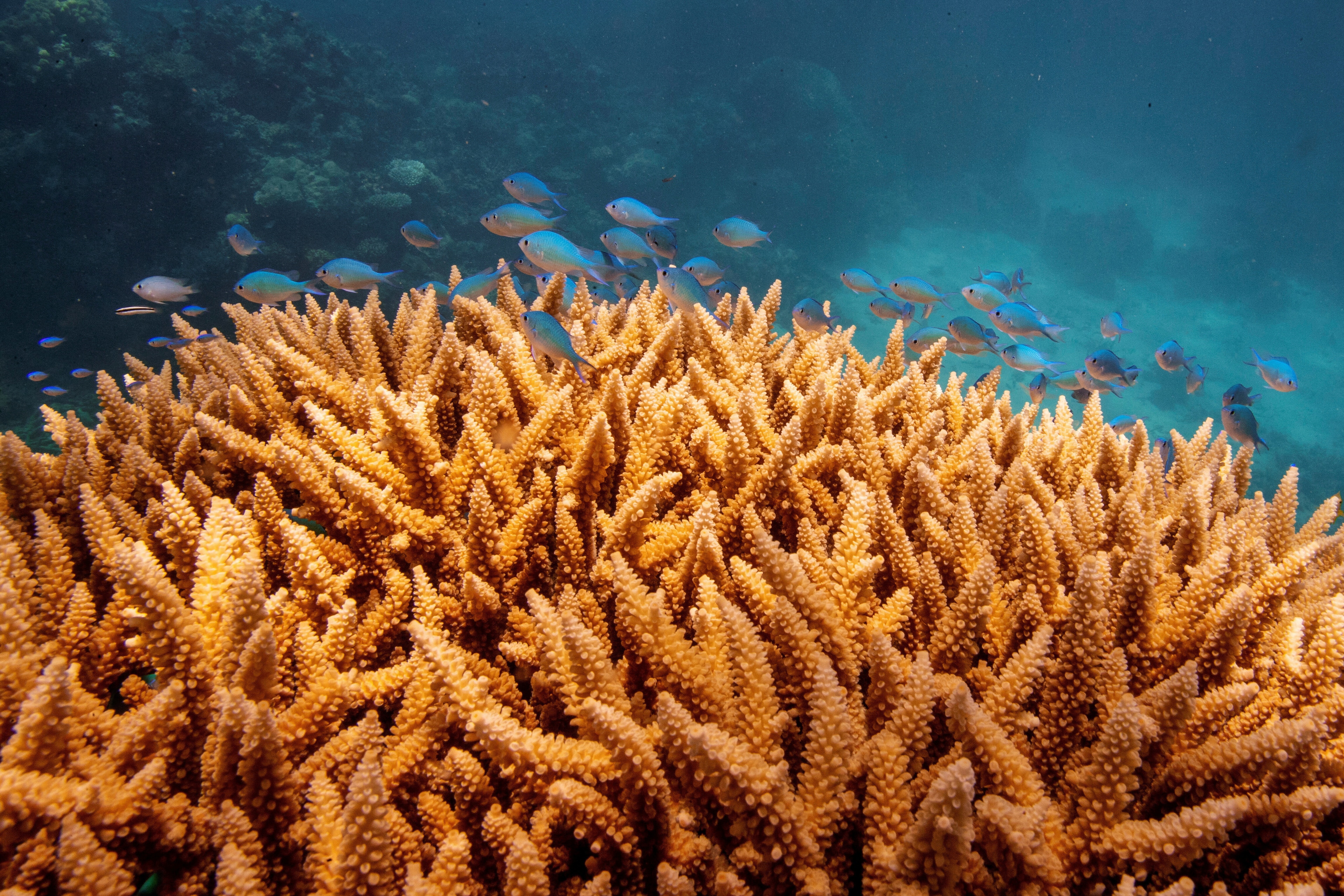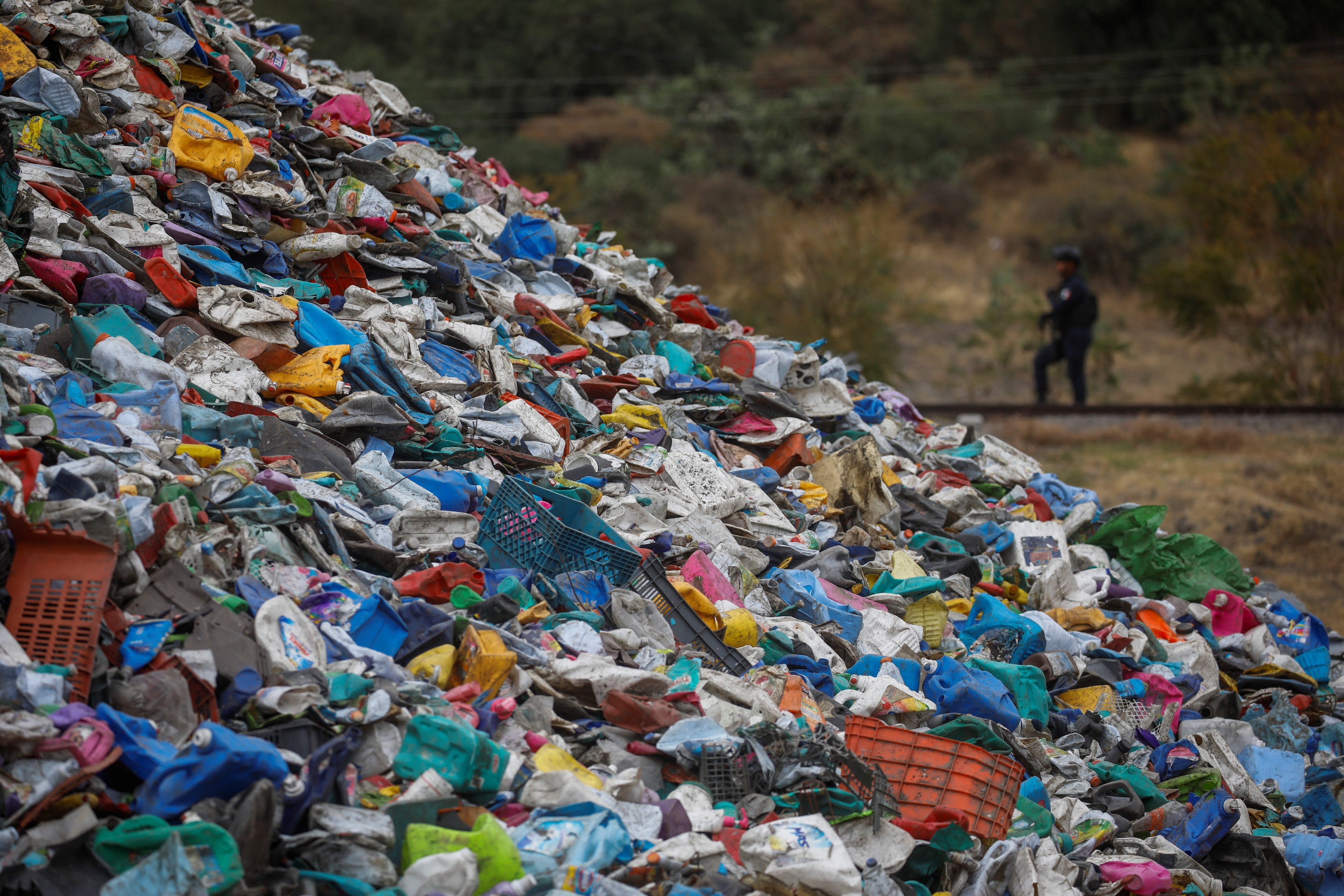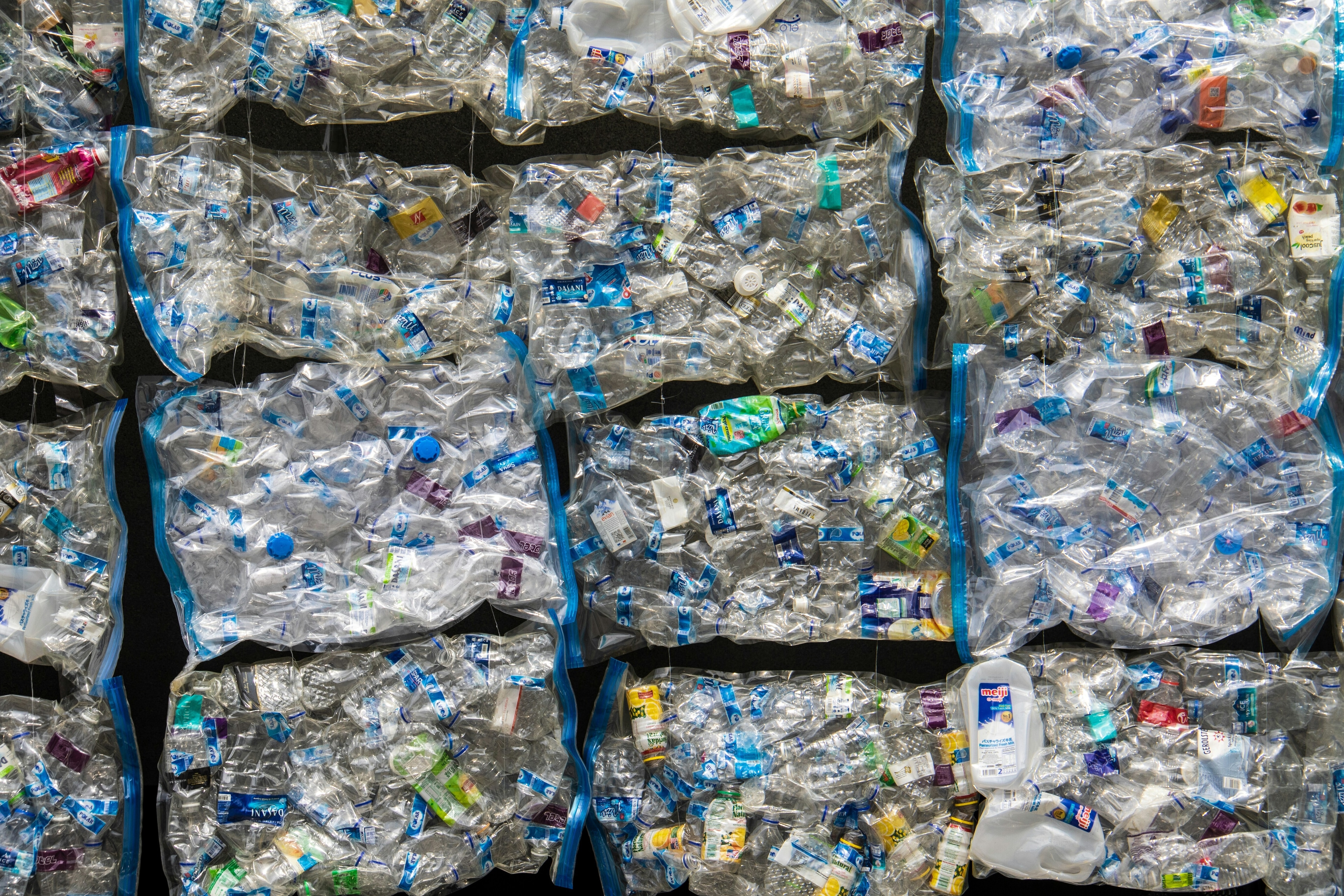Drought in Europe - and other environment stories you need to read this week

Climate change is affecting rainfall patterns, causing drought in many parts of the world.
Image: Unsplash/Steve Harvey
Stay up to date:
Future of the Environment
Listen to the article
- This weekly round-up brings you key environment stories from the past seven days.
- Top stories: The US Senate has passed a $430 billion bill to fight climate change; France is tackling worst drought on record; India approves new emissions targets; China warns of temperature rises faster than global average.
1. News in brief: Top environment and climate change stories to read this week
Wildfires raging through Europe this summer have burned the second-largest area on record – twice the size of Luxembourg – and it's still only halfway through the fire season. Just over 600,000 hectares have been affected so far this year, according to data from the European Union's Joint Research Centre.
The US Senate has passed a sweeping $430 billion bill intended to fight climate change and raise some corporate taxes. This marks a major victory for President Joe Biden that Democrats hope will aid their chances of keeping control of Congress in this year's elections.
Scientists say that climate change is increasing the likelihood of lightning strikes across the United States. It comes after lightning struck at a square near the White House on 4 August, leaving two people dead and two others in critical condition.
Temperatures during India's monsoon season have risen this century and the country could see more frequent heatwaves in future, the government says, but it added that heat-related deaths have fallen in recent years.
Japan has taken a first step into its research for a green gross domestic product (GDP) measurement that reflects the country's progress in reducing greenhouse gas emissions in its economic growth.
The European Commission has approved the German government's €3 billion ($3.05 billion) scheme to support renewable energy and waste heat-based district heating programmes, which it said would help Germany and the EU achieve their climate change targets.
The Gambia has recorded its heaviest rainfall in more than 30 years, causing widespread flooding and at least two deaths. Torrential rain that started on the morning of 30 July continued for more than 20 hours in parts of the West African country. The government has blamed climate change for the extreme weather.
Florida's sea turtles are grappling with a gender imbalance made worse by climate change. When a female turtle digs a nest on a beach, the temperature of the sand determines the gender of the hatchlings. Recent heat waves have caused the sand on some beaches to get so hot that nearly every turtle born was female.
What’s the World Economic Forum doing about climate change?
2. France tackling its worst drought on record
France is bracing for a fourth heatwave this summer. Its worst drought on record has left parched villages without safe drinking water and farmers have warned of a looming milk shortage in the winter, reports Reuters.
Prime Minister Élisabeth Borne's office has set up a crisis team to tackle the drought, which has forced many villages to rely on water deliveries by truck, stressed crops and prompted state-run utility EDF to curb nuclear power output.
Temperatures are rising in southwest France and the hot air is expected to spread north early this week.
Drought conditions are causing water shortages and having other impacts across Europe.
Farmers in Tuscany, the heart of Italy's prized wine and olive oil industry, are battling to salvage as much as they can of this year's crop from a drought and heatwave. A lack of rainfall since spring has affected plants that traditionally thrive in hot, dry conditions.
It comes as farmers in southern Spain fear extreme drought and consecutive heatwaves this year could cut olive oil output in the world's largest producer by nearly a third. Production could fall to 1 million tonnes in the 2022/23 season, down from 1.48 million tonnes last year.
3. India approves new emissions targets to tackle climate change
India, the world's third-largest carbon polluter, has approved new targets for slashing planet-warming emissions, more than a year after a United Nations deadline for updated commitments.
The pledges – known as Nationally Determined Contributions – will commit India to reducing the emissions intensity of its GDP by 45% from its 2005 level in the next 7 years, up from a 33-35% reduction target in its 2016 pledge.
Prime Minister Narendra Modi announced these goals last year at United Nations climate talks in Glasgow, but they had not been formalized.
India will also aim to meet half of its energy demands from renewable sources, such as solar and wind, by 2030. This is a boost over its previous target of 40%, which the government said it had achieved in December 2021.
The country's commitment to reducing emissions is more than its expected fair share and a welcome step, said Sanjay Vashist, Director of Climate Action Network South Asia, a network of not-for-profit organisations.
"The ambition shown by India is the role expected from all developed countries that have so far worked only to shift the responsibility of greenhouse gas reductions on developing countries," he told Reuters.
4. China warns that its temperatures are rising faster than global average
China's average ground temperatures have risen much more quickly than the global average over the past 70 years and will remain "significantly higher" in the future as the challenges of climate change mount, a government official said.
China's weather bureau describes the country as "a sensitive region in global climate change". Temperatures have risen by 0.26°C per decade since 1951, compared with the global average of 0.15°C, the bureau said in its annual climate assessment.
"In the future, the increase in regional average temperatures in China will be significantly higher than the world," said Yuan Jiashuang, Vice-Director of China's National Climate Center.
He warned that changing weather patterns in China will affect the balance of water resources, make ecosystems more vulnerable and reduce crop yields.
Extreme weather has wreaked havoc in recent weeks, with lengthy heatwaves causing droughts and forest fires across the world. Historically high rainfall in some countries has also caused deadly floods.
Accept our marketing cookies to access this content.
These cookies are currently disabled in your browser.
Don't miss any update on this topic
Create a free account and access your personalized content collection with our latest publications and analyses.
License and Republishing
World Economic Forum articles may be republished in accordance with the Creative Commons Attribution-NonCommercial-NoDerivatives 4.0 International Public License, and in accordance with our Terms of Use.
The views expressed in this article are those of the author alone and not the World Economic Forum.
Related topics:
Forum Stories newsletter
Bringing you weekly curated insights and analysis on the global issues that matter.
More on Nature and BiodiversitySee all
Tom Crowfoot
August 12, 2025
Pedro Gomez and Clemence Schmid
August 6, 2025
Tom Crowfoot
August 5, 2025



